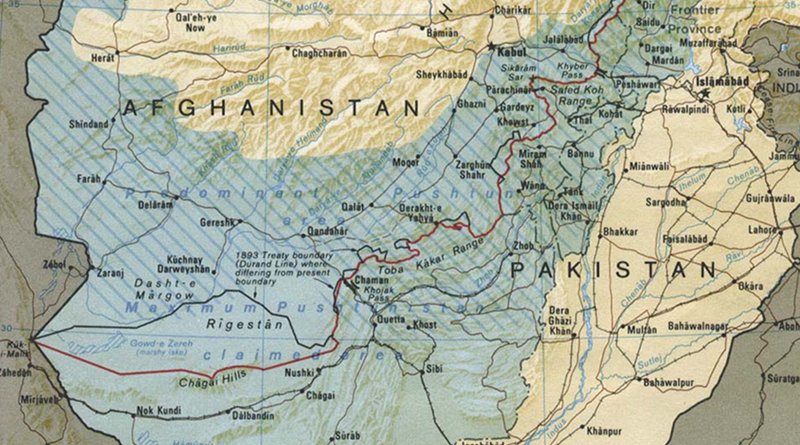Peace At Pak-Afghan International Border – OpEd
Pakistan has historically played a significant role in Afghanistan, given the two countries’ shared border and interconnected histories. Pakistan has been involved in various initiatives and diplomatic efforts to promote peace and stability in Afghanistan. Over the years, Pakistan has facilitated talks between different Afghan factions and has been supportive of reconciliation processes. It has hosted several rounds of negotiations, such as the Murree talks in 2015 and subsequent rounds in Islamabad, to bring Afghan stakeholders together to find a political solution to the conflict.
Pakistan has also taken measures to enhance economic cooperation and connectivity with Afghanistan. It has supported infrastructure projects, trade agreements, and transit routes to facilitate the movement of goods and people between the two countries. This includes initiatives like the Afghanistan-Pakistan Transit Trade Agreement (APTTA) and the development of the Gwadar Port in Pakistan, which can potentially provide Afghanistan with an alternate trade route to the Arabian Sea. Additionally, Pakistan has faced its own security challenges stemming from instability in Afghanistan, such as cross-border militancy and refugee issues. These challenges have further incentivized Pakistan to promote peace and stability in its neighboring country.
Likewise, the situation in Afghanistan is complex and dynamics between Pakistan and Afghanistan are influenced by a range of political, security, and historical factors. However, Pakistan is doing all it can to bring stability in Afghanistan. Pakistan Army completed one of the toughest border fencings in the world along with its border with Afghanistan particularly to stop illegal trade and cross border movement of militants. Pakistan is also working with Afghan authorities to facilitate cross border movement of people from both countries. Islamabad has upgraded and expedited the process of issuing visas to Afghani brethren.
Recently, Afghan Ministry of Foreign Affairs has announced that a joint committee will be established between the consular section of the ministry and the Pakistani embassy in Kabul in order to further facilitate the movement of nationals between the two countries. Setting up of a joint committee for cross-border movement by Afghan authorities under IEA is a welcoming development and shows positive trajectory of ties between the two countries.
Pakistan shares a 2250-kilometer-long border with Afghanistan, making it one of Afghanistan’s neighboring countries with the longest border. Despite the significant length of the border, there are limited operational crossing points between Pakistan and Afghanistan. These crossing points serve as important channels for trade, transit, and the movement of people between the two countries. Some of the major crossing points include Torkham, Chaman, Ghulam Khan, Angoor Adda, and Kharlachi.
Managing and securing such a vast and porous border presents various challenges, including human resource limitations. Due to the rugged terrain and security concerns, effectively monitoring and regulating the movement of goods and individuals across the border can be demanding. Governments on both sides continuously work to address these challenges and improve border management to ensure the safety and security of their respective countries. It is worth noting that the situation at the Pakistan-Afghanistan border can be influenced by geopolitical developments, security conditions, and the relationship between the two countries.
As Pakistan shares longest border with Afghanistan, such agreements intended on improved arrangements would not only improve bilateral ties but also generate mutual prospects of prosperity and development. This effort is reflective of Afghan government’s desire for continuous and practical engagement with Pakistan to ensure lasting peace between the two countries, which is encouraging. Recently, an additional trade route at Spin Boldak-Chaman border has been opened for easy trade by businesses community of both countries. The new route with further enhance trade and bilateral ties of both countries.
Pakistan has been actively engaged in efforts to promote peace and stability in Afghanistan. The country has consistently expressed its commitment to a peaceful resolution of the conflict in its neighboring country. Pakistan has played a facilitative role in bringing Afghan stakeholders together for dialogue and reconciliation processes. These initiatives aim to foster an inclusive Afghan-led and Afghan-owned peace process, where all parties can engage in constructive dialogue and work towards a political solution.
Furthermore, Pakistan has emphasized the importance of regional cooperation in achieving lasting peace in Afghanistan. It has advocated for increased diplomatic engagement and coordination among regional countries, as well as with international stakeholders, to support the peace process. Additionally, Pakistan has made efforts to enhance economic cooperation and connectivity with Afghanistan. It has supported infrastructure projects, trade agreements, and transit routes to facilitate trade and economic integration between the two countries. These initiatives can contribute to economic development and stability in Afghanistan.
Setting up of task team between Pakistan and Afghanistan is a right step towards improving bilateral ties while restricting movement of militant groups & putting an end to allegations of cross-border incursions. A joint team for Pakistan-Afghan border management was a much-needed arrangement to improve security checks and boost prospects for bilateral growth and development.
The writer is Islamabad based expert of strategic affairs

